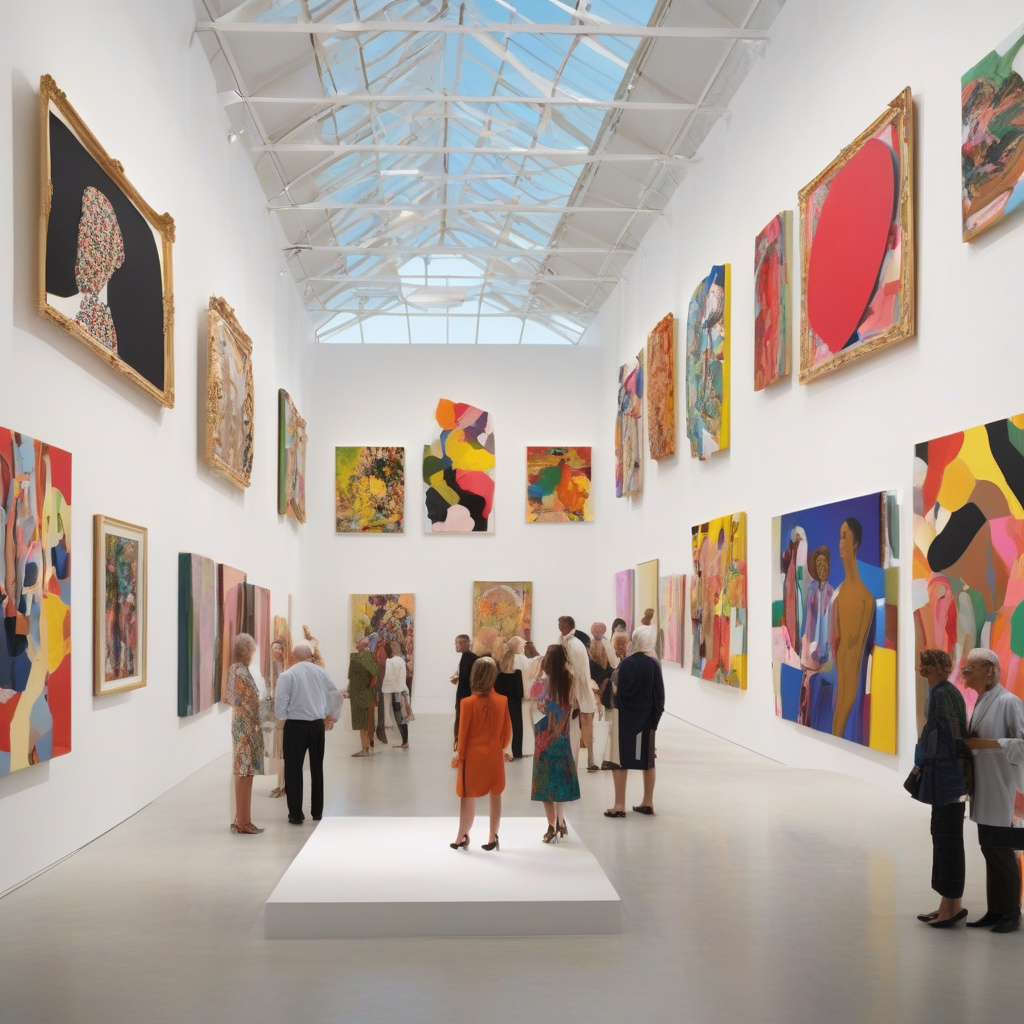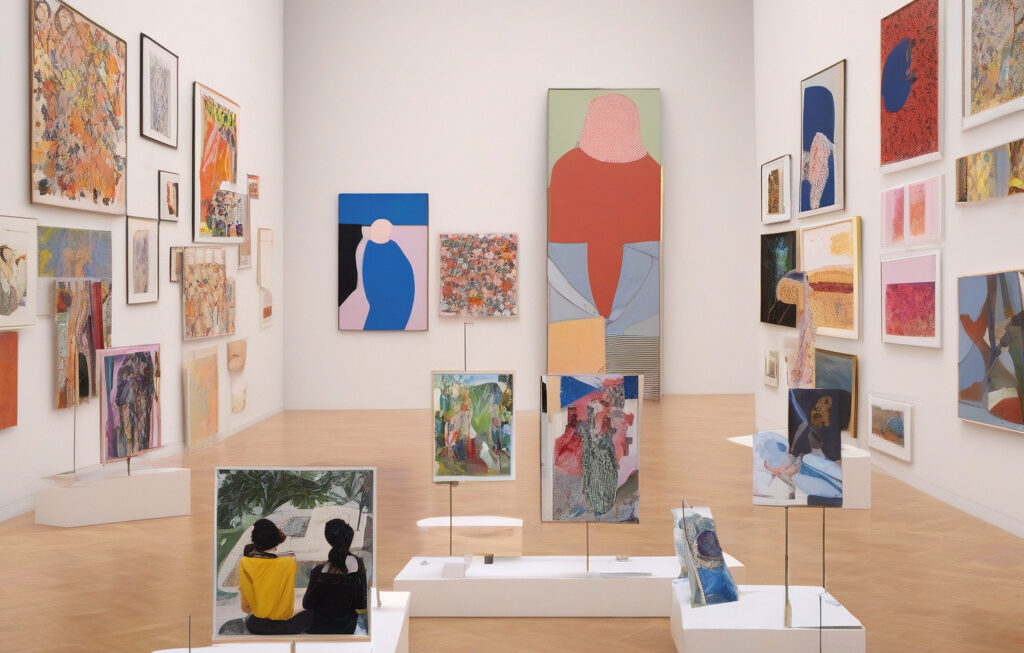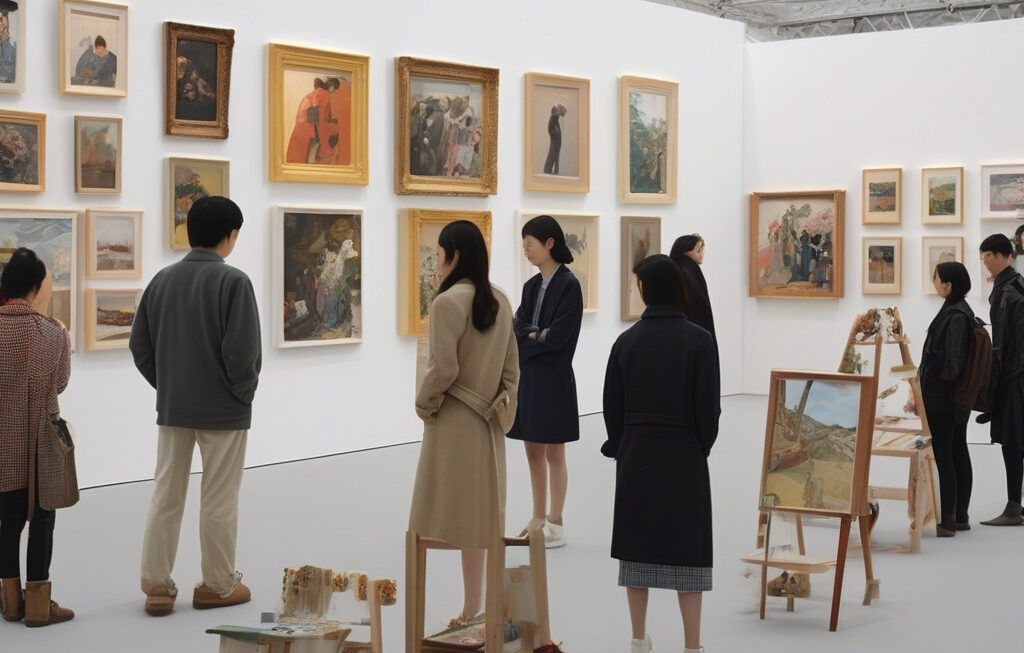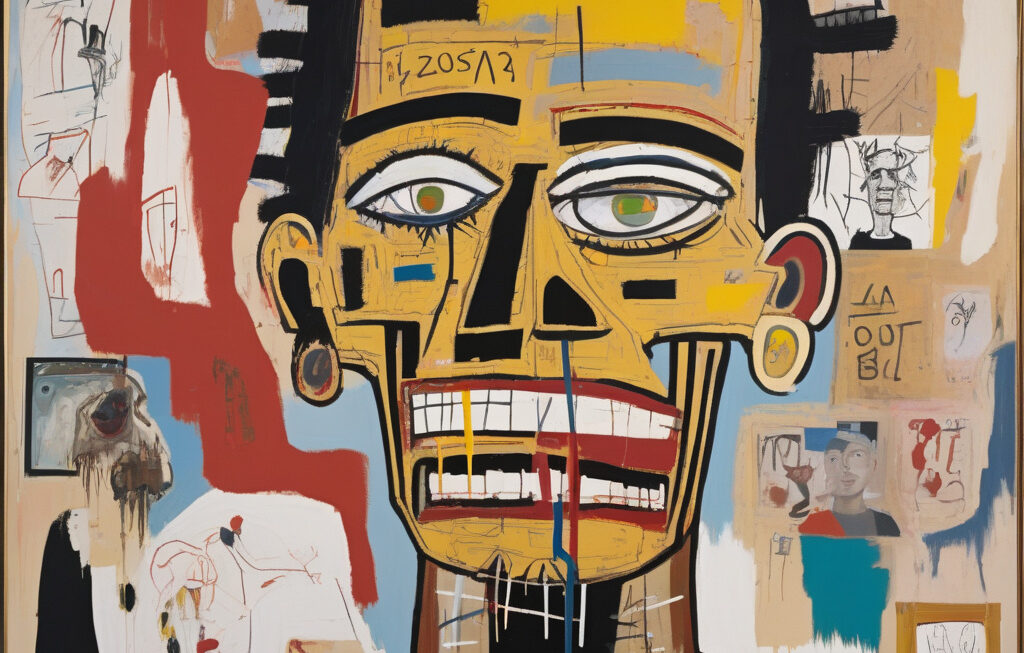Dealers at Art Basel Sidestep Politics, Reap Rewards
Art Basel, one of the most prestigious art fairs in the world, has always been a melting pot of creativity, culture, and commerce. This year, however, something seemed different. Dealers and artists seemed to have consciously sidestepped the turbulent waters of politics, opting instead for safe, apolitical works that resonated with the mood of buyers.
In a time where the world seems more divided than ever along political lines, the art world’s decision to steer clear of controversy is a strategic one. By presenting works that are politically neutral or devoid of any social commentary, dealers are able to appeal to a wider audience, tapping into the desire for art that provides solace and beauty in these uncertain times.
The choice to showcase safe, apolitical works may seem like a missed opportunity for artists to engage in important dialogues or push boundaries. However, from a business standpoint, it makes perfect sense. Art fairs like Art Basel are not just platforms for artistic expression but also major marketplaces where millions of dollars exchange hands. Dealers and galleries are keenly aware of the fact that art collecting is not just about aesthetics but also about investment. By offering works that are unlikely to provoke strong reactions or alienate potential buyers, they are ensuring a steady stream of sales and a loyal clientele.
Moreover, the decision to steer clear of politics does not mean that the art showcased at Art Basel lacked depth or meaning. On the contrary, many of the works on display were rich in symbolism, emotion, and technique. Artists found creative ways to address universal themes such as love, loss, identity, and nature without resorting to overt political messaging. In doing so, they were able to connect with viewers on a personal and emotional level, transcending the limitations of language or ideology.
One standout example of this approach was the series of paintings by a renowned artist that explored the beauty of the natural world. Through intricate brushwork and a vibrant color palette, the artist captured the essence of landscapes and wildlife, inviting viewers to contemplate the wonders of the earth and their place within it. The response from collectors was overwhelmingly positive, with many pieces being sold within hours of the fair’s opening.
In conclusion, while some may view the prevalence of safe, apolitical works at Art Basel as a missed opportunity for artists to engage with pressing social issues, it is clear that dealers and galleries have made a shrewd business decision. By tapping into the mood of buyers and offering works that provide comfort and beauty, they have reaped the rewards in terms of sales and customer satisfaction. Art may be a reflection of society, but it is also a commodity, and in the competitive world of art fairs, sometimes it pays to play it safe.
Art, when devoid of politics, can still be powerful, thought-provoking, and emotionally resonant. In a world that is increasingly polarized, perhaps there is value in seeking solace and inspiration in the universal language of art.
ArtBasel, Dealers, Rewards, SafeWorks, Buyers












